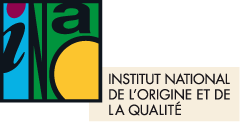This article is older and has been archived.
It remains accessible, but the information provided may be out of date or incorrect.
Defense and management organization
Protection of GIs, a step forward for the CJEU with the "Champanillo" case [ODG].
Following an initiative by INAO, the French government intervened in case C-783/19 known as "Champanillo" ("little champagne" in Spanish). Spanish tapas bars were referring to Champagne by using the name "Champanillo" in their advertising. On September 9, 2021, the Court of Justice of the European Union (CJEU) handed down a decision upholding the broad sui generis protection of GIs. A look back at this landmark case.

An evocation of Champagne to promote a catering service
This case concerned the use of the term CHAMPANILLO (which means "little champagne" in Spanish) to designate and promote tapas bars, with the advertising materials also depicting two clashing cups filled with an effervescent beverage. Considering that the use of the term "CHAMPANILLO" constitutes an infringement of the protection of the "Champagne" PDO, the CIVC therefore brought an action before the Spanish courts to prohibit its use, including in advertising materials, and to delete the domain name "champanillo.es" used by the operator on the Internet.
The Spanish court of first instance found that the use of the CHAMPANILLO sign did not evoke or infringe the "Champagne" PDO, on the grounds that the sign was aimed not at an alcoholic beverage but at catering establishments and, consequently, at products other than those protected by the PDO for a different public, and dismissed the CIVC's appeal.
The case was therefore appealed, and the Spanish Court wished to put to the Court of Justice of the European Union (CJEU) the question of whether, under the regulations, PDOs enjoy protection against prohibited conduct relating to both products and services.
Protection confirmed in the context of conceptual proximity between 2 names
In line with its previous decisions on protection, this new CJEU decision further clarifies the notion of evocation.
The CJEU had already had occasion to clarify that the evocation of a GI could be constituted by means of a name that has no similarity, either phonetic or visual, with a GI as long as there was a conceptual proximity between the 2 names and therefore a sufficiently direct and unambiguous link for the consumer between the name and the GI (judgment of June 7, 2018, case C-44/17) or could even be constituted by the use of exclusively figurative signs, provided that it was shown that there was a genuine conceptual proximity and not, in the public mind, a mere association of ideas. Thus, the link that must be made by the consumer must be direct and unambiguous, and above all refer him or her to the expressly registered name and not just to the region or geographical area to which the GI belongs (judgment of May 2, 2019, Case C-614/17).
In this case, the CJEU confirmed the broad protection of PDOs in respect of conduct relating to both products and services, including in the context of an evocation, provided that the practice aims to take advantage of the reputation of the PDO, without the need for the products or service covered by the disputed name to be identical or similar, or the need to establish the existence of a competitive relationship between the products or services or a risk of confusion for the consumer, the essential requirement being to demonstrate that the consumer establishes a sufficiently direct and unambiguous link between the term used to designate the product in question and the PDO.
All news dedicated to ODGs
The INAO's Délégation territoriale Occitanie is organizing another regional meeting with local ODGs on Wednesday, June...
News
News
INAO is launching a new campaign to promote the 5 official signs of quality and origin (SIQO) to the general public...
News

News
The Val-de-Loire territorial delegation of the INAO is organizing another regional meeting with local ODGs on Tuesday...
News

News
